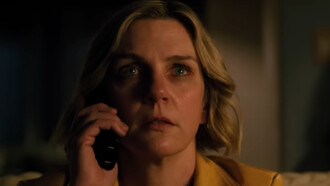Howard Hawkins’ 1940 feature film, His Girl Friday, may have been the first one to somewhat romanticize the plight of a paper’s superstar reporter, but it was certainly not the last. As time, and cinema, went on, the idea of the female romantic lead being a journalist has been taken to the screen so many times, it has almost become cliché, and it has become increasingly appealing as time went on.
From determined Andie in How to Lose a Guy in 10 Days to Sex and the City’s frustrating yet relatable Carrie Bradshaw, there is something about a journalist in a lighthearted film or TV show that seems to make them undeniably easy to fall in love with. Even 13 Going on 30, in which protagonist Jenna Rink finds herself living in the body of a 30-year-old with her 13-year-old mind still intact, shows her working as an editor for Poise magazine, her favorite magazine as a child, making journalism not only her career but the embodiment of her childhood ambition.
While seeing female protagonists take a male-dominated industry like journalism by storm has its benefits in regard to representation, the career is rarely, if ever, accurately presented on screen. The realities of the job are almost completely omitted, giving the impression that journalism is all glamor, company cards, and free passes to go anywhere and everywhere.
Even Carrie Bradshaw of Sex and the City, who consistently found a dozen complaints to file about her life, lived in a Manhattan apartment and pranced around New York in a pair of Manolo Blahniks carefully selected from the extensive shoe collection on money made from a weekly column focusing on the love lives of her and her best friends. A leisurely four deadlines a month left her with plenty of time for brunches and various functions her reputation afforded her entry into: who wouldn’t want that life?
Despite the variety in actual positions and job descriptions from film to film, the prevalence of journalism within the rom-com genre on both big and small screens is undeniable. Considering the glamour of it all is a movie magic smoke screen at best, why is the career path such a favorite among writers and directors for this specific type of screen storyline?
It could be the foolproof template for story and character development that the profession provides. Whether it be workplace conflict, a new assignment, or a pursuit of ambition, the backdrop of journalism allows for an easy plot catalyst and a ready-made path for the storyline to follow. The omnipresence of the dreaded deadline creates the time pressure; the balance of finding love and doing well professionally creates the high stakes; the article being written or the assignment being done creates a strangely satisfying outline.
Journalism becomes the old reliable, even if there is conflict, the article in question will somehow bring the storyline back on track, like a built-in deus ex machina. In order for it to fill that function, things like deadlines, word counts, budgets, and even target readership must go ignored, or it becomes a lot more complicated than a romantic comedy should be.
This, of course, also leads to the depiction of journalism as an easy ride, being paid enough to live alone in a luxurious one-bedroom apartment for writing pretty much whatever you like, sitting down to work now and then, and seemingly having days at a time of free time without having to worry about losing out on money.
The reality of it is not quite so romantic (or comedic): the journalists of the 2020s often have to take a second job just to get by, have constant deadline struggles, and displaying a rom-com level of sass with an editor means you’ll never work with them again. Luckily for the screenwriters, these aspects are easy to push aside without having to sacrifice the idea of a journalism career completely, which is likely another contributing factor to why the career is such a go-to for the classic rom-com.
Ultimately, however, journalism lets our lovable protagonist take control and have a voice throughout the entire plot, something a stereotypical rom-com protagonist may risk losing as the story develops. The position titles themselves; journalist, editor, editor’s assistant, also inherently demand a kind of respect that may not be an instinctual response for those who enjoy criticizing the genre.
Giving a main character a voice to the extent that a journalism career does makes for a protagonist that is difficult to underestimate or ignore. Despite this, it would be refreshing (and maybe even funnier) to finally see journalists on screen as they are in real life; sleep-deprived, stressed out, financially unstable, and probably scrambling for their next pitch. Many of these characters are shown being overly idealized and romanticized, far removed from the reality of a journalist’s day-to-day life, yet their stories continue to captivate audiences. However, the stories often miss the true challenges, making it important to reflect more authentically on the struggles journalists face.
In conclusion, while the portrayal of journalists as rom-com protagonists can be fun and relatable, it’s essential to remember that the reality of the profession is far less glamorous. With its constant deadlines, lack of financial security, and high-pressure environments, the reality of journalism deserves more recognition on screen. Although a fun, idealized version of the profession continues to thrive in film and television, there’s hope for more nuanced and authentic portrayals in the future, ones that balance both the challenges and triumphs that come with a career in journalism.















